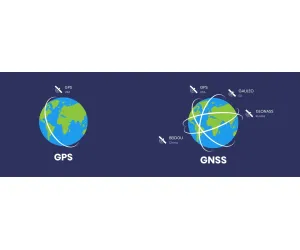GPS tracking refers to the process of monitoring the location of an object—such as a vehicle, person, animal, or equipment—by attaching a GPS-enabled device to it. These devices are equipped with a GPS receiver that captures the current coordinates (latitude and longitude) and records or transmits the location at regular intervals.
Explore our GPS tracking solutions: [Click here].
How GPS Tracking Works
GPS tracking relies on a network of over 30 satellites orbiting the Earth. These satellites send signals to GPS devices, which use the data to calculate and determine their precise location. This information is then shared with users through communication systems such as cellular networks or satellite connections.
Who Can Benefit from GPS Tracking?
GPS tracking is versatile and benefits both individuals and businesses. A common application is in fleet management, where it not only tracks asset locations but also assists in monitoring vehicle maintenance, analyzing fuel consumption, and improving driver behavior.
GPS Tracking for Asset Management
With its ability to pinpoint the location of devices, GPS tracking is invaluable for managing assets. It aids in recovering lost or stolen equipment and can trigger alerts if assets move beyond a designated area.
When combined with telematics, GPS tracking provides comprehensive data, allowing for proactive maintenance, performance monitoring, and improved operational efficiency.
Advantages of GPS Tracking
GPS tracking offers a range of benefits, including:
- Location Monitoring: Real-time tracking of vehicles, equipment, and high-value items facilitates recovery in case of loss or theft.
- Productivity Improvement: Usage patterns and idle time can be analyzed to identify inefficiencies and boost productivity.
- Enhanced Customer Service: Delivery businesses can provide real-time updates to customers about delivery schedules.
- Cost Savings: Insights gained from tracking help optimize operations, reduce theft, and improve maintenance, leading to reduced expenses.
Businesses can use GPS tracking to safeguard investments, manage resources efficiently, and make data-driven decisions.
Frequently Asked Questions
What is a GPS tracking device?
A GPS tracking device is hardware that attaches to a vehicle or asset to communicate with GPS satellites and provide location data. Basic devices offer spatial data, while advanced models may include features like speed monitoring or temperature sensors.
How does GPS tracking work?
GPS tracking involves placing a device on an object, which calculates its position using signals from GPS satellites. The location data is then transmitted via cellular or satellite networks to a server, where users can access it for applications such as navigation, safety, fleet management, and more.
Do commercial vehicles have built-in GPS tracking?
Many commercial vehicles, including those from leading manufacturers, come equipped with integrated GPS tracking. Solutions like Verizon Connect make it easy to manage various types of fleets.
Will I need to upgrade my computer to use GPS tracking?
Modern GPS tracking solutions often use the Software as a Service (SaaS) model, requiring only a web browser and internet access. Most devices are compatible without requiring significant hardware upgrades.
Where can I purchase GPS tracking hardware?
GPS tracking hardware is available through online retailers, electronics stores, manufacturers, or telecommunications providers like Verizon Connect. When selecting hardware, consider factors such as battery life, real-time tracking capabilities, and compatibility with your tracking platform.



